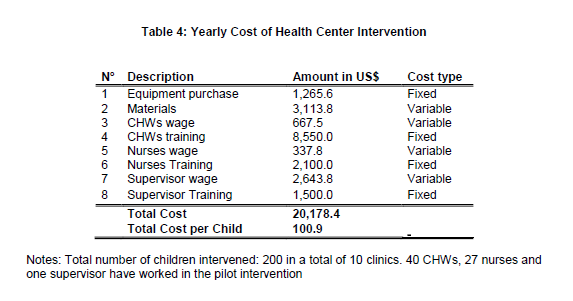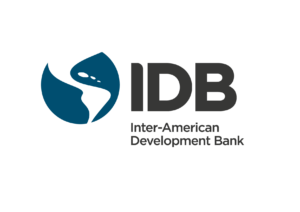
Delivering Parenting Interventions through Health Services in the Caribbean
Organization : Inter-American Development Bank
Project Overview
Project Summary
To improve neonatal care, health centers in the Caribbean showed new mothers video clips on child development, and community health agents led related discussions, demonstrations and practice activities.
Impact
At intervention health centers, children scored higher in cognitive development and mothers showed more improvement in parental knowledge than at control health centers.
Cost
The estimated cost per child is $100.90.
Source
Source
Challenge
In low and middle income countries, a large number of children under the age of five do not achieve full potential development due to risks associated with poverty, malnutrition and inadequate stimulation. It has been recommended to integrate early childhood development interventions into health and nutrition services. However, the information that exists on interventions that are effective and feasible to be delivered through health services is limited. This experiment develops and evaluates a parental support program that could be incorporated into visits to primary care health centers.
Design
In the Caribbean, maternal and child health clinics are based within primary care health centers and are typically held once a week. A parent training package was delivered to mothers of babies aged 3-18 months in routine clinics without requiring additional staff and was designed to occupy the time the mothers were spent waiting to see the nurse. The package was comprised of videos, followed by discussion with demonstration, and time for practice of activities, as well as provision of message cards and a few play materials to take home.
The videos were developed to deliver a series of child development messages. Nine modules were produced, each approximately 3 minutes in length, covering the topics: 1) Love; 2) Comforting baby; 3) Talking to babies and children; 4) Praise; 5) Using bath time to play and learn; 6) Looking at books; 7) Simple toys mothers can make; 8) Drawing and games; and 9) Puzzles. A sample session is given in the study report.

A cluster randomized trial was conducted in 29 Caribbean health centers, stratified by country (Jamaica, Antigua, and St. Lucia). Health centers were assigned to either a control group (n=15) or to an intervention group (n=14). Primary (children’s cognition, language, and hand-eye coordination) and secondary (caregiver knowledge, practices, postpartum depression, and child growth) outcomes were measured after the 18-month visit.
Impact
Multilevel analyses showed the health center intervention had significant benefits for children’s cognitive development and mother’s parenting knowledge. The average scores for children at intervention health centers after their 18-month visit was higher than children at control health centers, a difference equal to 0.3 standard deviations. Mothers in the intervention group improved significantly more on scores of knowledge and attitude concerning child development than mothers in the control group, an effect the size of 0.4 standard deviations. Qualitative interviews confirmed that mothers and health staff perceived intervention benefits for themselves and the children.
Furthermore, this intervention is cost-effective. The most conservative analyses found a benefit cost ratio of 5.3 for the health center intervention.


Implementation Guidelines
Inspired to implement this design in your own work? Here are some things to think about before you get started:
- Are the behavioral drivers to the problem you are trying to solve similar to the ones described in the challenge section of this project?
- Is it feasible to adapt the design to address your problem?
- Could there be structural barriers at play that might keep the design from having the desired effect?
- Finally, we encourage you to make sure you monitor, test and take steps to iterate on designs often when either adapting them to a new context or scaling up to make sure they’re effective.
Additionally, consider the following insights from the design’s researchers:
- Training and engagement of the medical staff is key: Community Health Workers (CHWs) and nurses were trained to discuss the messages of the films with the mothers and demonstrate the activities they had seen. A manual was provided that included program objectives, guidelines to engaging with mothers in the discussion and demonstration sessions, and the content for each of the sessions. The workshops were followed by coaching in the clinics by a supervisor from the research team, which also monitored the quality of implementation.
- The main implementation challenges reported were staff workload and managing groups during the training of medical staff. See the source paper for more detailed challenges and suggestions for improvements.
- See the below table for a detailed breakdown of the intervention costs:

Project Credits
Researchers:
Susan P. Walker Tropical Medicine Research Institute, University of the West Indies
Christine Powell Tropical Medicine Research Institute, University of the West Indies
Susan M. Chang Tropical Medicine Research Institute, University of the West Indies
Helen Baker-Henningham Tropical Medicine Research Institute, University of the West Indies
Sally Grantham-McGregor Institute of Child Health, University College London
Marcos Vera-Hernandez Department of Economics, University College London
Florencia Lopez-Boo Inter-American Development Bank


